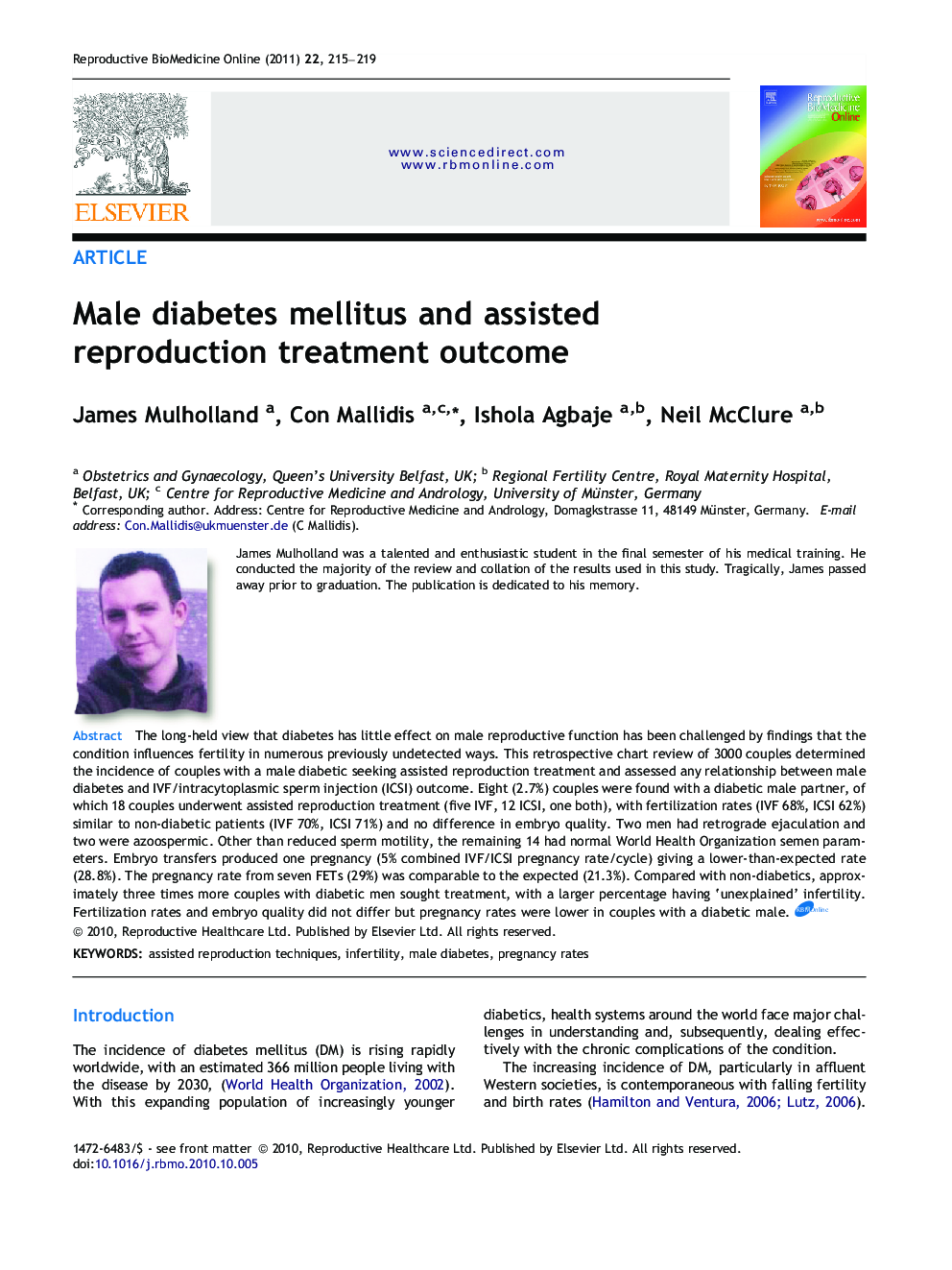| Article ID | Journal | Published Year | Pages | File Type |
|---|---|---|---|---|
| 3971277 | Reproductive BioMedicine Online | 2011 | 5 Pages |
The long-held view that diabetes has little effect on male reproductive function has been challenged by findings that the condition influences fertility in numerous previously undetected ways. This retrospective chart review of 3000 couples determined the incidence of couples with a male diabetic seeking assisted reproduction treatment and assessed any relationship between male diabetes and IVF/intracytoplasmic sperm injection (ICSI) outcome. Eight (2.7%) couples were found with a diabetic male partner, of which 18 couples underwent assisted reproduction treatment (five IVF, 12 ICSI, one both), with fertilization rates (IVF 68%, ICSI 62%) similar to non-diabetic patients (IVF 70%, ICSI 71%) and no difference in embryo quality. Two men had retrograde ejaculation and two were azoospermic. Other than reduced sperm motility, the remaining 14 had normal World Health Organization semen parameters. Embryo transfers produced one pregnancy (5% combined IVF/ICSI pregnancy rate/cycle) giving a lower-than-expected rate (28.8%). The pregnancy rate from seven FETs (29%) was comparable to the expected (21.3%). Compared with non-diabetics, approximately three times more couples with diabetic men sought treatment, with a larger percentage having ‘unexplained’ infertility. Fertilization rates and embryo quality did not differ but pregnancy rates were lower in couples with a diabetic male.Other than some erectile and ejaculatory problems, diabetes has been largely ignored when assessing male fertility, due to a paucity of studies and inconsistencies regarding the condition’s impact on semen quality. Recently, diabetes has been found to induce various subtle molecular changes important for sperm quality and function. Increased sperm DNA damage, a factor associated with decreased embryo quality and implantation, in diabetic men together with a previously reported increase in miscarriages prompted us to undertake the current investigation. Our aim was to determine the incidence of couples with a male diabetic attending a fertility centre and to assess whether there was a relationship between male diabetes and assisted reproduction treatment outcome. A review of the medical histories of 3000 couples seeking infertility treatment found 80 (2.7%) couples where the male was a known diabetic, 18 underwent treatment. Other than reduced sperm motility, 14 of these men had normal semen. No difference in fertilization or embryo quality was found, yet pregnancy rates for fresh embryo transfers in couples with a diabetic man (6%) were significantly lower than expected (28.8%). Although preliminary and probably an underestimate, approximately three times more couples with diabetic men sought fertility treatment than expected, most described with ‘unexplained infertility’. The findings that fertilization rates and embryo quality did not differ from non-diabetics but pregnancy rates were significantly lower suggest the prevailing attitude on diabetes and male fertility needs to be reassessed and the condition’s influence more thoroughly examined.
